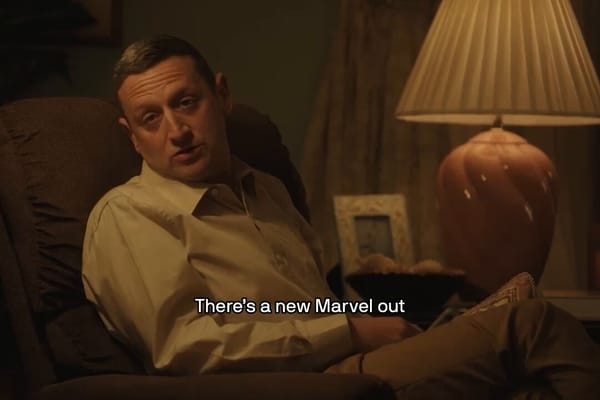House of Usher
Day 25 of my 31 Days of Horror viewing

For the last few years, I have used October to give myself a viewing assignment: a different horror film each day. Now that I have escaped the real life horror of New Zealand’s public service, I intend to write a piece inspired by each film.
My twenty-fifth film is Roger Corman’s House of Usher (1960).

The olm is a type of salamander native to the Slovenia’s Dinaric Alps. Adapted to its life in caves, it is notable for being pale and blind with its other senses heightened. I was reminded of this most captivating of amphibians while watching 1960’s House of Usher.
I decided to conclude my series of Roger Corman’s Edgar Allan Poe adaptations by looping back to where it all began. This first film in the series expands on Poe’s The Fall of the House of Usher with its story of Philip Winthrop (Mark Damon) who travels to the titular mansion to visit his fiancée Madeline Usher (Myrna Fahey). When he arrives, he finds Madeline’s brother Roderick (Vincent Price) completely un-amenable to the idea of relinquishing any degree of control over his sister.


This might be my favourite of all Price’s performances I’ve seen this month. He describes his interpretation of Roderick Usher: "I tried to give the impression that he'd never been exposed to the light, someone who had just bleached away." But the true villainy of Usher lies in his affected victimhood. Every word Philip utters, every suggestion of more liberty for Madeline, every footstep, hits Usher like a slap across the face. If he visually resembles some sort of chthonic amphibian, his personality reminded me more than anything of Nancy Marchand’s performance in The Sopranos.
This ‘smol bean’ approach to abusive control makes Usher an analogue to the modern conservative. Like them, he must position himself as constantly under attack while he violates those around him. Think of the way Zionists must frame Israel as uniquely vulnerable while carrying out a genocide or the TERFs’ constant invocation of victimhood. For me, the line “any sort of food more exotic than the most pallid mashes… unendurable to my taste buds,” immediately made me think of David Seymour and his storied aversion to non-beige food. These similarities are not just superficial: in addition to being a picky eater with a nigh-transluscent visage, Seymour has chosen to depict himself as the victim of poet Tusiata Avia while actually wielding (and abusing) real power.

Like a conservative, Usher doesn’t give a shit about future generations. He lets the infrastructure crumble around him with the mansion itself one of the film’s most potent symbols. Usher wants his house (literal and metaphorical) to end and to ensure he is the last in the line of aristocratic villains. Ending the Usher line requires him to control Madeline’s body—the gendered abuse playing an important role in his ideology. This is a man who doesn’t care whether he destroys everything and everyone around him in the pursuit of his deluded goal.

Although the film is largely interior and stagey by design, Corman does find excuses for some flourishes. A dream sequence in which Philip is confronted by generations of Ushers is wonderful and the director does manage to scratch his arsonist itch. But for me, even more than their later collaborations, this is a film that orbits around Vincent Price’s performance. Usher is an olm, a ‘woe is me’ conservative, an abuser and a disgusting inbred aristocrat. He is one of my favourite horror film monsters.



